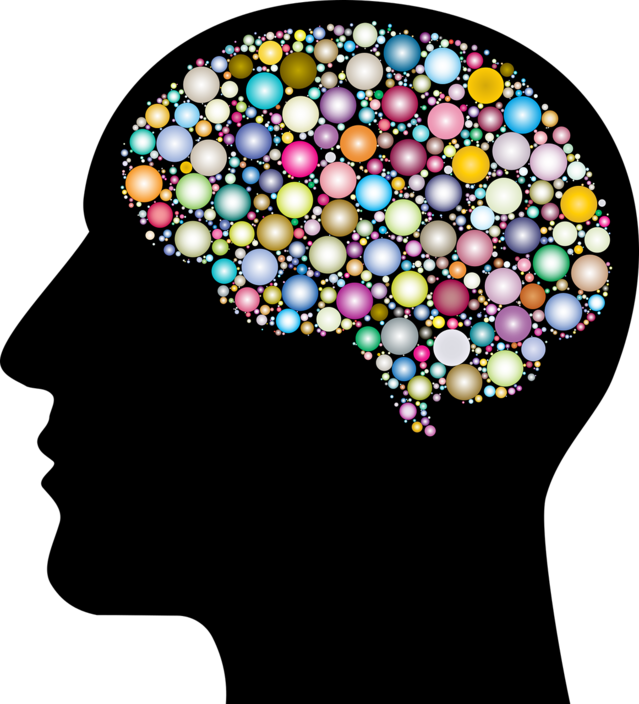Health
Are These Bad Habits Ruining Your Brain?
3 simple ways to build a better brain at any age.
Posted March 9, 2021 Reviewed by Devon Frye
Key points
- Sleep, exercise, and a healthy diet all contribute to brain health—as do these underappreciated tips.
- Avoid sensory overload and focus on one task at a time for peak performance.
- Prioritize spending time with people face-to-face.
- Hearing loss is associated with dementia. Protect your hearing by wearing earplugs around loud noise.
We live in an era where people are increasingly concerned about protecting their brain health. Unfortunately, we also live in an era where our technology and daily habits are rewiring our brains in unhealthy ways. Experts agree that the modern lifestyle poses a serious risk to our gray matter, chipping away at our neurons and making our brains slower, less creative, and less productive.
If we want to preserve our brains, now and for years to come, we are going to have to tweak our lifestyle. You probably already know that poor sleep, poor diet, and poor exercise put your brain at risk, so I’m not going to repeat those here. Instead, let’s examine some often overlooked habits that threaten your brain health and identify some simple fixes.

1. Avoid Sensory Overload
Think about the sheer number of information bites your brain has to juggle in a typical day. Now compare that number to what your parents had to deal with when they were your age.
We are living in a golden age of sensory overload. Emails, texts, Twitter feeds, Instagram, 24-hour news, 24-hour streaming, 24-hour everything! This constant stream of information means our brains rarely get a chance to process something before five other things are on its heels.
“No problem,” you might say, “I’m great at multitasking.” But you are wrong. Research has shown time and again that despite what people claim, multitasking always leads to poorer performance. Even worse, it dulls the brain. According to a study conducted at Gresham College, just having an email sitting unread in your inbox while you try to concentrate on a task can damage your problem-solving performance by an equivalent of 10 IQ points.
As MIT neuroscience Earl Miller explains, the human brain is “not wired to multitask well… When people think they’re multitasking, they’re actually just switching from one task to another very rapidly. And every time they do, there’s a cognitive cost in doing so.”
We think we are expert jugglers, keeping all of the balls churning in the air. But really, we are more like a novice who can only keep one ball going at a time. When our attention is focused on one ball, all the others come crashing down.
Once you accept that efficient multitasking is a myth, you can better identify ways to protect your precious brain energy. Be mindful of how you consume media throughout the day. Instead of checking your emails at all times of the day, consider relegating this task to a few time slots (for example, once in the morning and once in the afternoon). And look for creative ways to guard your brain against unnecessary information, especially during times when you want peak brain performance. For example, consider using apps that limit your most tempting distractions during designated hours.
2. Too Much FaceTime, Not Enough Face Time
Face-to-face interactions were already on the decline when the pandemic hit, and lockdown only made this trend worse. Before the pandemic, the average American adult spent 17 hours a day glued to a screen, be it a TV (4.5 hours), computer (5 hours), or gaming system (3 hours). That adds up to 6,259 hours a year, which constitutes an average of 44 years of your life staring at a screen!
Digital tools are quickly replacing physical interaction, and while this makes remote work easier, it isn’t benefiting our brains. Human brains are hard-wired for social, face-to-face interactions. Social interactions encourage neuronal growth and give our brains opportunities to forge new connections. One University of Michigan study found that just 10 minutes of daily face-to-face conversation led to marked improvements in cognitive performance and memory. Social interaction also decreases loneliness and depression, both of which threaten brain health.
Look for ways to unplug from your electronics and include doses of social interaction throughout the day. Have a regularly scheduled sit-down dinner with your family and ban all phones from the table. Take regular walks with loved ones, which allows you to get two brain boosts in one: social connection and exercise. While the pandemic continues, join a social group online and once lockdown is over, make this activity face-to-face.
3. Protect Your Hearing
People often overlook how the brain’s next-door neighbors, the ears, play a vital role in cognitive health. But if you think about it, hearing is one of the most important ways your brain receives information from the external world. Anything that makes that information more difficult to process means your brain has to work extra hard to complete its task. No wonder then that hearing loss in older adults is associated with having less gray matter and a greater likelihood of dementia.
Sadly, hearing problems are on the rise. One in four American adults now shows signs of noise-induced hearing loss, making it the third most common chronic health condition (just after diabetes and cancer). We talk a lot about protecting our health by wearing sunscreen, using condoms, eating healthy, and exercising, but rarely do we discuss protecting our hearing.
The government isn’t doing much to regulate noise pollution these days and hopefully, that will change, but in the meantime, here are a few things you can do:
- Wearing ear protection while mowing your lawn or using other high-decibel machinery
- Wear earplugs at concerts
- Wear noise-canceling headphones on airplanes
- Keep the volume on all your electronic equipment to a minimum (Tip: If you can hold your headphones an arm’s length and still hear the music, your volume is too high)
- Embrace the joy of silence and schedule noise-free breaks throughout the day
For more quick tips on how to boost your brain health, check out my earlier article. Looking for an even deeper dive into this topic? Check out Dr. Sanjay Gupta’s excellent book, Keep Sharp: Build a Better Brain at Any Age.
Facebook/LinkedIn image: shisu_ka/Shutterstock




